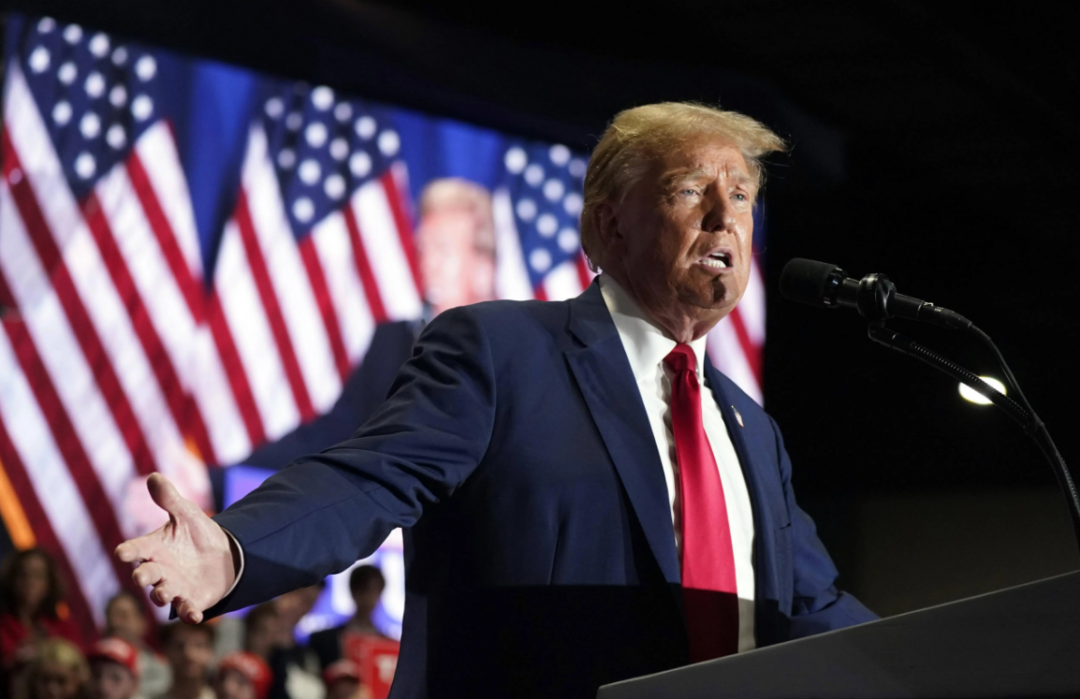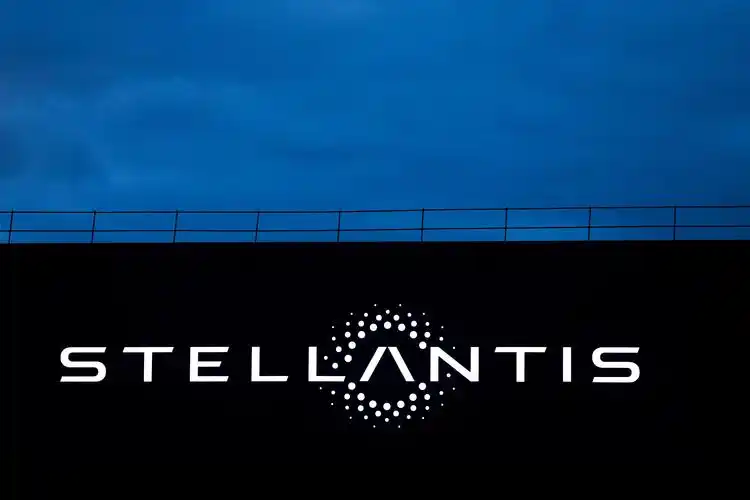Who Ultimately Suffers from Trump's "Indiscriminate Attack"?
![]() 04/07 2025
04/07 2025
![]() 498
498
The journey to reshore manufacturing to the United States is fraught with challenges, and the future remains uncertain.
On April 2, 2025, President Trump's decision to impose a 25% tariff on all imported cars and key components will officially come into effect.
This permanent policy, aimed at "reshoring manufacturing," can be seen as an indiscriminate attack by the US. Allies, partners, and even subordinates are all within its scope.
During a Senate hearing, Japanese Prime Minister Shigeru Ishiba previously lamented that Japan has made "significant contributions" to the US economy in terms of investment and employment. It is "extremely inappropriate" for the US to impose auto tariffs on all countries indiscriminately and strongly demanded exemption. After all, the US is the largest single market for many Japanese automakers.

Ironically, Trump specifically mentioned Toyota in his speech announcing the tariffs, claiming that it sells 1 million foreign-made cars in the US every year and is the "worst offender." In addition to Japan, the Hyundai Kia Group, which relies heavily on the US market, could become the third largest automotive group.
Last month, Hyundai Motor of South Korea submitted a letter of intent, hoping to exchange more market share and policy preferences by increasing investment in the US. However, this US investment plan, totaling $21 billion, did not grant exemptions or preferences to South Korea. Faced with significant tariffs, such investment appears even more awkward.
While Japan and South Korea may be considered smaller partners that can be easily brought to the table, this round of tariffs may first hurt the Trump administration's own supporters.
The first blow lands on those closest to home.
The new tariff policy has sparked widespread complaints globally, but the real voice of opposition has already risen from every corner of Mississippi.
Trump claimed that tariffs will encourage more production to shift to the US, generate new revenue for the government, and help reduce national debt. However, objective economic principles do not lie. Tariffs will push up car prices and harm consumer interests.
Gary Hufbauer, a former US Treasury official, stated that Trump's newly announced tariffs are a "major blow" to the auto industry. He noted that Ford and GM's share prices have plummeted, and increased auto costs will reduce demand, especially when consumers' financial situations are weak. He anticipates "mass layoffs" in US auto and parts companies.
Automobile companies, auto workers, and a vast number of middle- and lower-income workers in the US actually form Trump's political base.
The Detroit Regional Chamber and the Automobile and Mobility Association, two major business groups in Michigan, jointly wrote a letter to the White House this month, strongly opposing the new tariff policy.
The letter emphasized that Michigan has over 1,000 automotive suppliers, and one out of every five jobs is related to the automotive industry. The automotive industry contributes approximately $300 billion in economic output to the state each year. If tariffs are implemented, the resulting surge in costs will severely disrupt the supply chain, and working-class and middle-class families will be forced to bear higher vehicle costs.
The working class, a core supporter of Trump during last year's election, is now directly impacted by his tariff policy.
Trump cannot escape the political iron law that the first blow often lands on those closest to home.
Faced with Trump's tariff stick, US automaker General Motors urgently adjusted its supply chain, planning to relocate its engine production line from its Mexican plant back to Michigan, which can be seen as a direct response to Trump's call for "reshoring manufacturing."
However, this move is expected to take 18 months and faces pressure from US unions for wage increases (hourly wages may rise from $32 to $38), thereby indirectly increasing the cost of automobiles.
Ford has focused more on immediate interests and launched an employee discount car purchase plan called "From America, For America" for US consumers.
Anticipating changes in future auto consumption, Ford has decided to go against the grain and first sacrifice profits to stabilize the market and employees through price reductions. Ford believes that now is the right time to launch this plan to promote its largest business among automakers in the US.
Of course, voters in the "Rust Belt" have not yet realized that they are the biggest victims, only knowing that Trump's indiscriminate attack is fighting for them.
It will take some time for the decline in living standards caused by price increases due to tariffs to manifest. From this perspective, Trump is employing a time-difference tactic, reaping the present, and overdrawing the future. For now, the working class remains relatively supportive. Social media sentiment monitoring shows that positive sentiment on topics related to the "Rust Belt" has increased by 22%, especially on Douyin, where the #BuyAmerican hashtag has been viewed over 100 million times.
In a street interview, the American working class was not even clear about who would ultimately pay these tariffs. This tariff storm is forming a typical "policy boomerang," where the group that should be protected instead becomes the biggest victim.
"My Chevy Silverado has been driven for 12 years, and I wanted to replace it with a Hyundai Tucson, but the 4S store quoted a direct price increase of $8,000! Is this forcing me to take out a loan or sell my kidney?" roared John Wilson, a truck driver from Michigan, on social media.
Even Tesla CEO Elon Musk tweeted overnight in protest: "Tariffs will hit Tesla hard! Our battery supply chain is all in Asia, and now the cost of each car has soared by $12,000!"
Faced with the avalanche of opposition, Trump's response is for everyone to hold on.
Using your own spear to pierce your own shield.
Under such indiscriminate attacks, there is only one option for enterprises that do not want to be cut.
One day after the tariff policy took effect, Stellantis, the world's fourth-largest automaker, quickly took action and announced the temporary layoff of about 900 American workers. Prior to this, Stellantis announced the suspension of the development of the next-generation Jeep Compass compact SUV and the suspension of the transformation plan of the Brampton assembly plant in Canada.

You are unkind to me; don't blame me for being unkind to you.
Nissan Motor is also actively considering reorganizing its supply chain and suspending the acceptance of new orders in the US. British automaker Jaguar Land Rover has also begun to respond, suspending the shipment of all cars to the US for a month.
Volkswagen is also ready to respond. According to internal documents, Volkswagen has activated emergency plans for the North American market, comprehensively suspending the Mexican railway vehicle transportation channel, and retaining vehicles for sale at European seaports, waiting for further clarity on tariff policies.
The Volkswagen dealer network has been notified to prepare for the implementation of the new pricing strategy in mid-April, and all models affected by tariffs will complete inventory allocation by the end of the month.
It is worth noting that in 2024, China exported approximately 116,000 complete vehicles to the US, and this set of tariffs has a limited impact on Chinese automakers.
In fact, the US auto industry is already highly dependent on the global division of labor. For example, up to three-quarters of GM's profits come from China, and Ford's plant in Mexico supplies 60% of vehicles in the US... Once tariffs are imposed, and this triggers retaliation from related countries, intensifying the trade war, the backlash effect on the US auto industry will be particularly significant.
At the government level, similar countermeasures have followed one after another.
On April 2, a spokesperson for the European Commission stated that the EU's countermeasures against the US Trump administration's tariff increase will be carried out in two phases. According to the spokesperson, the first phase of countermeasures mainly targets the previously imposed US steel and aluminum tariffs, and the second phase targets the US import auto tariffs.
The EU's first phase of countermeasures is completing internal procedures, including a list of countermeasures totaling 26 billion euros (approximately 208.1 billion yuan). The second phase of countermeasures will be announced after the US announces a new round of tariff measures on April 2.
Canadian Prime Minister Justin Trudeau held a press conference in Ottawa on April 3, local time, announcing a series of countermeasures against the so-called "reciprocal tariffs" imposed by the US. Trudeau stated that Canada will impose a 25% tariff on all US imported cars, and all proceeds from anti-tariff measures will be returned to the automotive industry.
The British government announced on April 3 that it has initiated a one-month consultation process on imposing retaliatory tariffs on the US in response to recent trade restrictions imposed by the US on British exports.
On April 4, China launched 11 countermeasures to resolutely counter the "reciprocal tariffs" imposed by the US. Among them, China announced a 34% tariff on all imported goods originating in the US. Both "34%" and "all" have sparked widespread discussion in public opinion.
According to media reports, after China took a series of countermeasures, the US stock market suffered heavy losses for the second consecutive day on April 4, local time. The Nasdaq Composite Index fell 20% from its historic closing high, entering a technical bear market.
Under indiscriminate attacks, Trump has reached a point where he is condemned by everyone.
Clearly, the path to reshore manufacturing to the US is fraught with challenges, and the future remains uncertain.
Note: Some images are sourced from the internet. If there is any infringement, please contact us for deletion.







